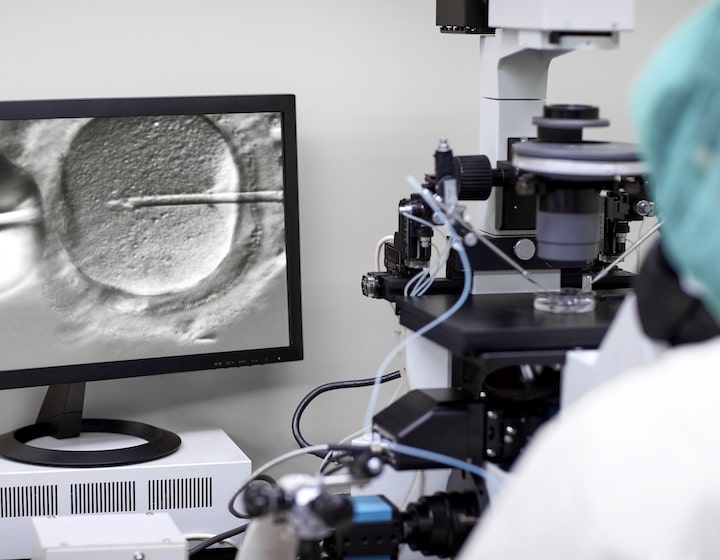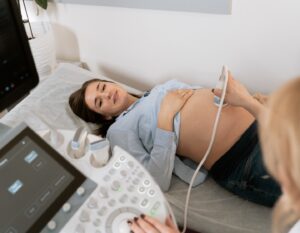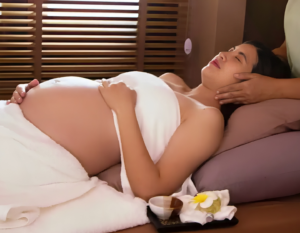

So the time has come for you to consider IVF in Hong Kong. Knowledge is power when it comes to our reproductive systems, so here are some of the things you can expect from the medical system if you’re facing trouble conceiving, infertility or starting your IVF journey.
Deciding to start a family can be an exciting, optimistic and happy time. It can also be stressful, frustrating, heartbreaking and exhausting. If you’ve been trying to conceive for a while, you are probably well into the frustrated stage and looking for answers. While in vitro fertilisation (IVF) isn’t generally the first option for most people who have trouble getting or staying pregnant, going to a fertility specialist who can also perform IVF in Hong Kong could be the right choice if you want to establish a relationship with one doctor or clinic that can see you through your entire journey.
If you have private health insurance or maternity insurance, make sure to speak to your insurance provider to understand what is and is not covered prior to booking any appointments.
Jump To:
What To Know Before You Start
What Is IVF
IVF Clinics In Hong Kong
Read More: Your Guide To Family Health Insurance And Maternity Cover In Hong Kong
What To Know Before You Start IVF In Hong Kong

Figuring Out Your Fertility Issues
Generally speaking, the beginning of this process is the same regardless of which doctor or clinic you choose. You will be best served to have your partner at your first appointment, so the doctor can collect information from you both. The last thing you want is more time lost because the doctor doesn’t have all the right information from the start.

Collecting Your Medical History
Infertility can be due to female factors, male factors or a combination of both, so you’ll both be asked about your medical and sexual history. Make sure you’ve both been honest with one another about your sexual health and past.

Conducting Fertility Tests
Initial tests help piece together what might be causing the fertility challenges. They start out basic – a semen analysis, blood tests for hormones, a transvaginal ultrasound – and then progress depending on the results. Tests to check ovarian reserves and look for any blockages or abnormalities in your reproductive tract are all possibilities.
Read More: Where To Make A Will In Hong Kong

Exploring Assisted Reproductive Technologies In Hong Kong
Pending the results of your tests you might be presented with a progressive approach to help facilitate conception. Your doctor will take into account your medical history, tests, age and the amount of time you’ve been trying to conceive to present you with your options.
These options can range from addressing an underlying medical condition to simple fertility medication (usually oral or injectable hormones), surgery to correct any abnormalities, intra-uterine insemination (IUI, where sperm is placed directly in your uterus at the exact right time) or IVF. In some cases, treatments are combined. In rarer cases, the man might need to have surgery to access the sperm needed to perform IUI or IVF.
There are big decisions to be had, so at this point, it could be worth collating your test results and seeking a second opinion.

Legalities And Paperwork Of Assisted Fertility And IVF In Hong Kong
In order to have IVF in Hong Kong you’ll need to be legally married and produce a marriage certificate (it doesn’t have to be from Hong Kong). If you are unmarried (including same-sex couples), you will need to look at IVF options overseas.
The doctor will review all of the risks with you so you are fully aware. You’ll also sign a consent form stating that you understand these risks. There are also forms to consent to any freezing and storage that might be needed for eggs, embryos and sperm. You’ll need to know what you want to do with any extras and will likely be given the option to dispose of them or donate them for research.
Read More: What It’s Like To Raise Children In A Same-Sex Family


The IVF Process Explained
If it is determined that IVF is your best option, you might feel overwhelmed. Between the cost, time commitment, the emotional toll and the possible frustration, or blame of yourself or your partner (or both), plus the physical side effects for the female partner, there is a lot to deal with. Not to mention you’ve already been trying to have a child for some time now – patience is probably running thin.
You might be tempted to rush the process but don’t forget to take care of yourself mentally and physically. Lifestyle can play a role in fertility success so be sure to address any red flags with your doctor prior to proceeding.
Read More: 10 Practical Tips For Improving Mental Health

What Is IVF?
IVF is basically the process of fertilizing eggs outside of your body to create an embryo that is then transferred to the uterus. Your doctor will work with you to establish a timeframe for the entire process. It will likely be dictated by your natural menstrual cycle.
Your doctor can speak specifically to the success rate that correlates to your age and situation, but generally speaking, the “live birth rate” for IVF in Hong Kong is around 30% per cycle (according to the Hong Kong Medical Journal). However, this is highly variable, and unfortunately, the percentage reduces rapidly the older you get.
Read More: Where To Buy Maternity And Nursing Bras In Hong Kong

IVF Step 1 – Stimulation Of The Ovaries
You will be prescribed fertility medication to trick your body into producing a large number of eggs. The medication is usually self-administered (or you can have your partner do it) via shots in your abdomen or thighs. At set time markers, you will be given transvaginal ultrasounds and blood tests to monitor the progress.
IVF Step 2 – Egg And Sperm Collection
Once the eggs are mature, you will give yourself (or be given) a trigger shot to stimulate ovulation during a set timeframe. Usually, you will have the shot at night and be expected to arrive for egg retrieval at an exact time. Egg retrieval is a minor surgical procedure and you might be given antibiotics to prevent infection. The procedure is quick but you are given sedation to relax and prevent any possible pain. The doctor will use an ultrasound to guide a hollow needle through the pelvic cavity to pick up the eggs and transfer them for storage or insemination. It is recommended to skip work or other responsibilities after the procedure. Take a sick day and try to relax.
Your partner will be asked to produce a sample of sperm or will have already had any procedures necessary to produce sperm. In some cases that will mean the sperm is cryo-frozen.
Read More: Where To Find Counselling, Psychologists And Therapists In Hong Kong
IVF Step 3 – Fertilisation
Now it is time for insemination; the sperm and eggs are mixed together and stored in a lab dish to promote fertilisation. If there are some male factor issues, each egg might need to be injected directly with a single sperm to increase success. This is called intracytoplasmic sperm injection (ICSI). Once the eggs are fertilised (and it is to be expected that not all of them will fertilise) they are considered embryos. Doctors will then wait 3 to 5 days for the embryo to grow before moving on to the next step. While you are waiting, you will continue to take fertility medication if you are going to have a fresh transfer.
IVF Step 4 — Embryo Transfer
Some doctors like to let your body calm down after the stimulation of the ovaries, especially if you’ve developed any of the possible side effects from fertility medication, such as hyper-stimulation.
If you aren’t waiting, you’ll have a fresh embryo transfer. You’ll be asked to come to your transfer with an excruciatingly full bladder, which is probably one of the worst parts of the entire process (besides all the needles). Then the doctor does an unbelievably fast procedure to place the embryo into an ideal location within your uterus. If you are doing a frozen embryo transfer (FET) your doctor will give you a timeline for the transfer, as well as any medications to continue on.
After the transfer, you can proceed with your day as usual, but it’s best to avoid any strenuous activities. Follow your doctor’s advice.
Read More: Your Guide To Meditation And Mindfulness Centres In Hong Kong
IVF Step 5 – The Wait
The wait will likely be the most excruciating part of treatment. You will continue to take fertility medications to support implantation and will be scheduled to come in for a pregnancy blood test about 10-12 days after the embryo transfer. Someone from the clinic will call you later in the day after you have the blood test in the morning, usually within a specific time frame.
Take into consideration how you will react to the news. Can you handle taking the call at work and getting a disappointing outcome? Can you get positive news and continue on with your workday as normal? Consider taking a half day or working from home if you might be derailed by the news in either scenario. For others, getting on with their day, as usual, might be best.
IVF Step 6 – Next Steps
If you get a positive pregnancy result, you will be scheduled for additional blood tests at specific dates to monitor your hormone levels. That will tell the doctor if your pregnancy is progressing. From there, if all goes as expected, you will have several early appointments to check that the pregnancy is implanted properly and not ectopic and to monitor the progress. So the bright side of all of this is that you will get to see your baby way earlier than “normal.” About 12 weeks into your pregnancy, you will revert to the standard pregnancy care timeline.
If your fertility doctor isn’t going to be the doctor delivering the baby, you would also generally be released from their care at this time and transferred to the obstetrician that you will deliver with.
If the result is not positive, you will want to set up an appointment to decide on your next steps. If you have viable embryos from this round of IVF and your doctor agrees, you can try again for a FET in the next cycle. If you only had one viable embryo and it was used in the transfer, you will need to undergo the entire IVF process again.
Read More: Pregnant In Hong Kong — Delivery Packages In Public And Private Hospitals
What NOT To Say To Someone Trying To Conceive


Hong Kong IVF Clinics
The Council On Human Reproductive Technology has a wealth of information (even if it isn’t presented on a particularly user-friendly website). It also lists all the licensed centres for assisted reproductive treatments in Hong Kong.
Public Assisted Fertility And IVF Clinics In Hong Kong
Hong Kong has three public hospitals that provide IVF services. In order to qualify for public system fertility treatment, it is important to note:
- Couples must be legally married heterosexual couples
- The female partner must be a Hong Kong citizen
- The female partner must be under the age of 40
While subsidised care is available for qualifying couples, patients are still responsible for the cost of medication and laboratory fees. It’s also important to note that the waiting time in the public system can be well over a year. The price range for IVF at public hospitals is based on your treatment plan but could be in the range of $20,000 to $35,000.
- Centre of Assisted Reproduction and Embryology (CARE) — Available at both Queen Mary Hospital and Kwong Wah Hospital. www.hkuivf.hku.hk
- Assisted Reproductive Technology (ART) Unit — Run from the Prince Of Wales Hospital in Sha Tin. www.ivfhk.com
Read More: Preparing For Birth In A Hong Kong Public Hospital

Private Hospitals And Clinics Offering IVF In Hong Kong
Hong Kong has several licensed private clinics. This option provides the most flexibility, shortest wait times and least stringent requirements but it is much more expensive. Couples can expect to pay upwards of $150,000 for one round of private IVF treatment. You can also use the public hospital private route. The only qualification is that patients must be legally married at the time of treatment and costs are a little lower than the private clinics. Each clinic’s costs vary and are based on your specific treatment requirements so contact them directly for specific, up-to-date pricing.
- Union Hospital Reproductive Medical Centre — Run from the hospital in Sha Tin and the medical centre in Tsim Sha Tsui. www.ivfhongkong.com
- Hong Kong Assisted Reproduction Centre — Central, Hong Kong. www.hkarc.com.hk
- Hong Kong IVF Centre — Tsim Sha Tsui, Kowloon. www.hkivf.com
- Hong Kong Reproductive Medical Centre — Tsim Sha Tsui, Kowloon. www.fertility.com.hk
- IVF Centre — Hong Kong Sanatorium & Hospital, Hong Kong. www.hksh.com
- ProlIVFic A.R.T. Centre — Central, Hong Kong. www.pivf.com.hk
- The IVF Clinic at The Women’s Clinic — Central, Hong Kong. www.thewomensclinic.com.hk
Editor’s Note: All licensed clinic information is gathered from the Hong Kong Council on Human Reproductive Technology and is accurate as of March 2023. Please note that we’ve only included public and private clinics that perform IVF. There are other licensed laboratories that perform testing and other services that can be a part of the IVF process. The complete list, including labs, can be found here. Sassy Mama also referenced The American Pregnancy Association website, www.americanpregnancy.org, during the writing of this article.
This article is for informational purposes only and is not intended to be a substitute for professional medical advice.
Thanks to Adeline Ma, an IVF and ART consultant specialising in helping women navigate the IVF process in Hong Kong.
 View All
View All


 View All
View All


 View All
View All

 View All
View All


 View All
View All











